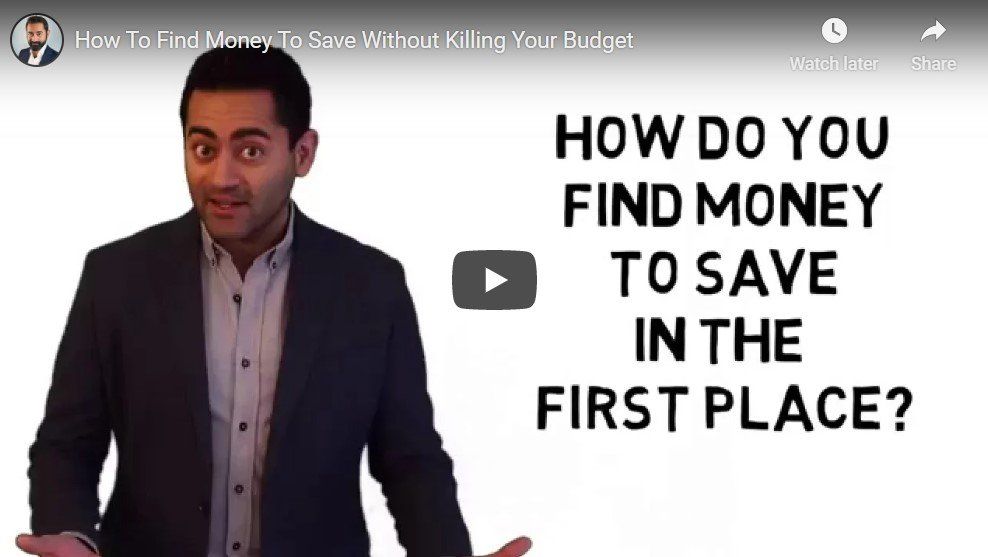Finding Money For Closing Costs!
If you are planning on purchasing a property in the next couple of years, here is a really good video that will explain how you can find some extra money to put away into savings without impacting your lifestyle. Maybe you can even find enough money to cover the legal fees of buying your next home, that would be a nice challenge.
Transcript
Hey guys welcome to mostly money, I hope you like what I’ve done with the place, and if not keep your comments to yourself.
So this week, I thought I’d talk about how you can find the money to save in the first place because I think a lot of people are on board with the idea that saving money is in fact a good idea but sometimes they struggle with finding that money to put away. So here’s one quick idea that I think anyone can put into practice, convert automatic expenses into automatic savings. Here’s what I mean by that, when it comes to automatic savings it works well for people because they forget how much they’ve been saving automatically but it’s the same with your expenses after a while you forget all the expenses that you’ve committed to. So there is the potential that you could reduce or eliminate some of these regular expenses that you haven’t looked at in a long time.
Here’s what you do, simply take a look at all your credit card statements and bank statements for the last two months. Go over it line by line and take a look at all the regular recurring automatic expenses and write them down. I’m talking Netflix subscriptions, TV packages, internet service, insurance premiums, subscriptions you have to magazines and newspapers anything that occurs on a regular basis on those statements. Write each of those items down, next write down how much you’re spending per month for each of these items. The next thing you’re going to do is take each of these expenses and figure out if there’s any way to reduce or eliminate them. For example, Netflix subscriptions have three tiers: basic, standard, and premium .The premium services $11.99 per month and it gives you access to stream in ultra HD but if you don’t even have an ultra HD capable device you’re paying for something you don’t even need. Or maybe you can settle for regular HD and if you do that you can downgrade to the middle tier, the standard package which is $9.99 per month so that’s only $2 in savings but bear with me. Maybe it’s been a while since you first signed up for streaming service and back then you thought there’s no way i can get rid of cable just yet but fast forward two years and all you do now is Netflix and chill. Now is a great time to see if maybe you can reduce your cable package and easily save $30 per month or more.
When was the last time you looked at bank fees? If you haven’t looked at your banking package in the last couple of years, I’m going to bet it’s pretty easy to see that at least $5 per month. If you go through this simple exercise for all your regularly recurring expenses, I don’t think it would be a surprise to find that a lot of people can find $50 per month in savings, but now here’s the trick. Whatever savings you find you have to immediately commit to an automatic savings plan, for the exact same amount so if you find $50 in savings, you actually have to save the savings and put that $50 away into a savings account. You’re not going to notice a big change to your cash flow, but after 12 months of saving $50 per month that’s going to add up to $600! If you want to find a $1000 in annual savings you need to find $83.33 per month in expenses to cut out. The point is if you take a few hours to go through this exercise you can make a big positive change to your finances without having a big change to your lifestyle.
So to recap:
- Make a list of all your automatic regularly recurring expenses.
- For each of those items figure out if you can reduce or eliminate them.
- Most importantly, whatever savings you find you have to direct either into a high-interest savings account or towards accelerating your high interest debt payments and that’s it!
If you’ve done this exercise before or you were inspired to do because you watch this video I would love to see what your results were. Let us know in the comments section down below how much money you freed up and thanks for watching!
Hey guys, thanks for watching Mostly Money. I hope you enjoyed today’s show don’t forget to subscribe to my channel by clicking on the button in the bottom right hand corner of your screen a
little thing that says Subscribe. There are lots of videos to explore my channel like this one. So, if you want to learn more about money and personal finance in a fun way check those out! If you have any questions for me you can reach out to me on Twitter at Preet Banerjee or you can leave your questions and comments down below in the comments section. That’s it for today see you next time.
Katherine Martin
Origin Mortgages
Phone: 1-604-454-0843
Email: kmartin@planmymortgage.ca
Fax: 1-604-454-0842
RECENT POSTS






